Description
Love, Attachment and Intellectual Disability came about from the authors’ experience working together in clinical learning disabilities services, and their work to move the focus away from the management of challenging behaviour and towards a trauma-informed, attachment-based approach to caring.
It introduces some of the key theories that have informed our understanding of the emotional development of people with intellectual disabilities and the importance of receiving love from an attachment figure from a young age. There are case studies that focus on the lives of particular individuals – sometimes presented as individual therapy sessions and sometimes an overview of progress across many sessions.
Audience
Clinical psychologists; learning disability specialist clinicians, front-line care staff, nurses and allied health professionals; students of these disciplines; professional and family caregivers of people with intellectual disabilities; care provider organisations.
Details
Publisher: Pavilion Publishing and Media
ISBN: 9781803883243
Publication date: January 2024
Pages: 140
Content
Foreword: Professor Nigel Beail
Preface
Chapter 1: Why this book is needed
Chapter 2: Klein, Bowlby, Mahler & Došen:
Theories of our need for love
Chapters 3 – 16: Individual case studies
Chapter 17: The Team: We’re flagging
Chapter 18: What the science says: Dismissing attachment does not stand
Chapter 19: Putting love at the heart of care services
Authors
Victoria Shimmens is an Assistant Psychologist at NHS England. In 2021 she co-wrote a chapter with Allan Skelly and Aimee Corner about the long-term outcome of using Positive Behaviour Support interventions in The Bulletin of the Faculty of People with Intellectual Disabilities.
Allan Skelly is the 2019-2021 Chair of the Faculty for People with Intellectual Disabilities (FPID) of the British Psychological Society (BPS) and Consultant Clinical Psychologist with Cumbria, Northumberland, Tyne & Wear NHS Foundation Trust. Allan was chair of the working group which produced the 2017 BPS clinical practice guidelines for the integration of Attachment Theory into the work of clinical psychologists in the UK.

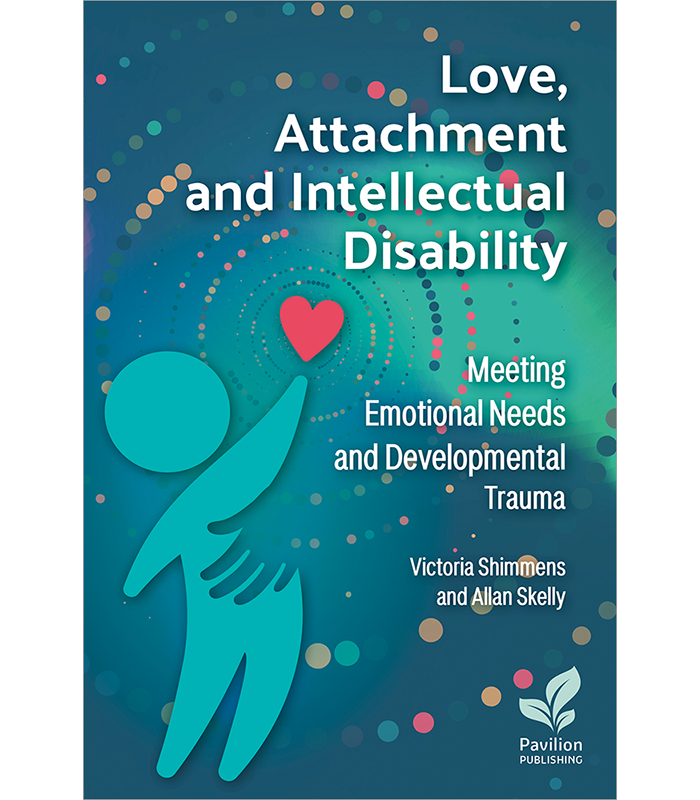
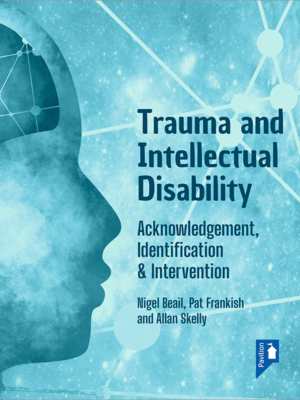
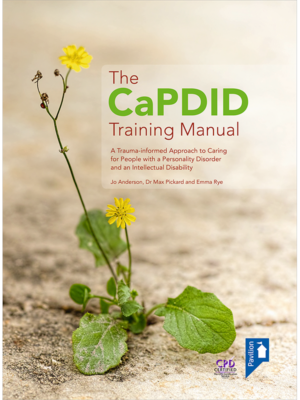
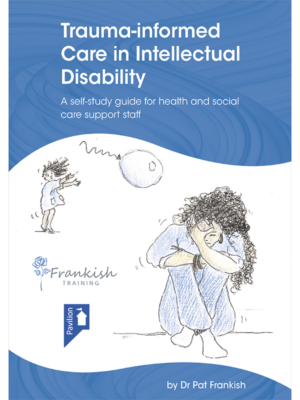
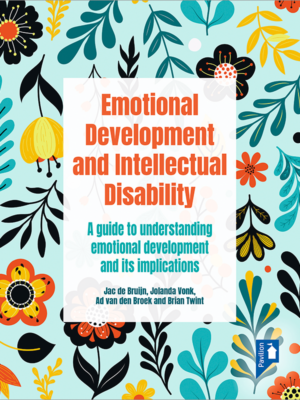
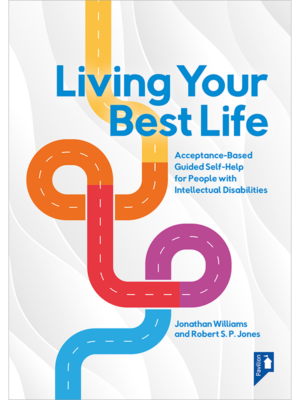
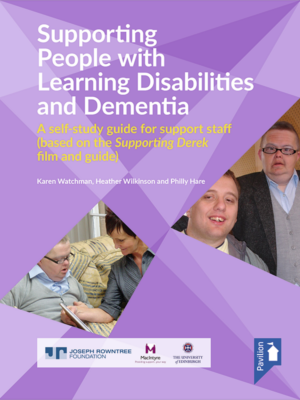
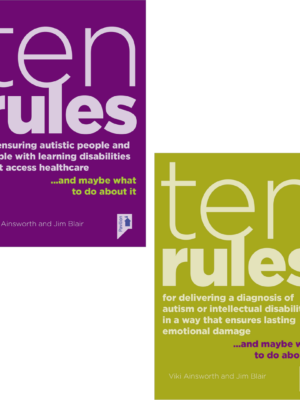
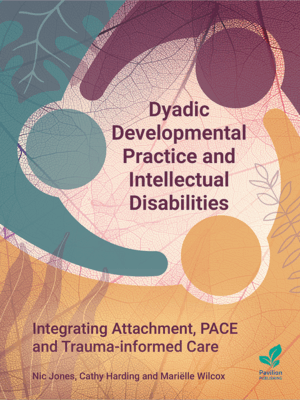
Mae Saunders, Mental Health Practitioner, Springvale Park Special Developmental School –
I am the social worker and Mental Health Practitioner at a Special Developmental School in Victoria, Australia. Our school accepts only students with a moderate to severe intellectual disability. I am working to implement the perspectives and approach mentioned in your book. I found this book to be incredibly helpful and accessible. It provides ideas for lots of other resources that we can adapt for use with the students and families in our setting.
Dr Helen K Fletcher, Consultant Clinical Psychologist –
‘Love, Attachment and Intellectual Disability: Meeting Emotional Needs and Development Trauma’ by Victoria Shimmens and Allan Skelly introduces an important consideration of the need for deep, enduring relationships in the lives of everyone, including of course, people with intellectual disabilities. They provide a foundation for this focus through summarising work by key theorists and practitioners including Melanie Klein, Margaret Mahler, John Bowlby, and Anton Dosen and applying this to understanding the emotional and developmental needs of people with Intellectual Disabilities.
They stress the importance of understanding the emotional developmental level of people with ID and ensuring that support is appropriate and expectations of the person are consistent with their stage of development. Individual’s stories are then presented to illustrate their emotional needs and how these can be shown through behaviours of distress. Consideration is given to the support which is needed to avoid the individual’s experiences of attachment trauma or lack of security in attachment relationships, being pathologised and treated as a mental health illness or challenging behaviour outside the context of the person’s lived experience, attachment needs and stage of emotional development.
Readers will be challenged to consider the importance of love and to take a critical stance in viewing support which may have offered attempts to understand functions of behaviours or mental health symptoms without acknowledging whether the person’s primary needs (physical and emotional) are being consistently and securely met.
At times, the authors appear to lack some compassion and understanding of the factors creating challenges for carers who are described in the individual’s stories and one could argue that the lens is strongly viewed from the professional worker’s perspective. However, the authors do reflect on this passion and directness in their writing, explaining this as being part of their aim to influence change through strongly advocating for the needs of vulnerable individuals.
The authors also raise pertinent questions about community mental health and intellectual disability services, critiquing targets which focus on processes without due consideration of meaningful outcomes. This book brings lots of food for thought although it is certainly, at times, an uncomfortable read.
Dr Noelle Blackman, Psychotherapist, Supervisor, Coach, Consultant and Trainer specialising in psychological trauma. –
This is a beautiful book. We rarely, if ever, see the word ‘love’ associated with our work in the caring professions. However, there is now a move towards ‘relational working’ as part of the recognition of the importance of trauma informed practice and this book really looks from many angles at defining some of the qualities of this.
It opens with a valuable chapter exploring a range of key theories that help us to conceptualise the human need for love. These are explained in clear, straightforward language.
The rest of the book comprises chapters that use clinical vignettes to illustrate and bring some of the theories explored to life through observations and reflections. There are sometimes a few judgements made from the therapist perspective that can seem harsh. However, it also comments on itself doing this, for example a quote from Barth (2009) “Therapists can easily identify with the parent-blaming to support their client, but this is not actually helpful, because it involves distortion. In reality, no one is fully evil, or fully good.”
I particularly liked a chapter that takes a narrative perspective of the support of a young man who makes the people around him anxious. It examines 4 differing perspectives that the professionals take up from their specific role, most of which are not really helpful at all in seeing him as a person with a history.
I will end with another quote:
“Closeness involves risk; risk of being hurt and eventual grief. Closeness is absolutely necessary, however, to truly understand a person like Colin. This was also true of our relationship with the care team. They trusted that we cared, would help them explore, provide a framework for understanding and comfort when they were sad or anxious about him.”
All in all, this is a brave book full of love that brings a humanness to the messy and difficult work of supporting people who have often been too horribly de-humanised.
Emma Rye, Consultant Clinical Psychologist, Mental Health of Learning Disability Services, Kent and Medway Partnership Trust –
There have been vast improvements in the ways in which services try to promote the psychological wellbeing of people with learning disabilities since I developed a passion for this work during my training as a clinical psychologist in the early 1990s. At that time there were a small number of inspirational professionals powerfully arguing for the importance of attending to the inner worlds of people with learning disabilities. However, three decades on there are still relatively few books looking at the ways in which the difficulties experienced by adults with learning disabilities often have their origins in trauma within attachment relationships; and what the implications of this are for services. Victoria Shimmers and Allan Shelly give an overview of the theoretical framework, in language which is accessible to professionals who may not have a background in psychotherapy. They are quite clear in stating that this book is aimed at commissioners of services, as well as clinicians and others.
The power of the book lies in the thoughtful and respectful way in which they share with the reader the stories of the people they have worked with during their many years of experience. They focus on the importance of attending to the language used when talking about the people we work with: the narratives developed within services shape the care provided. They give practical examples as to how we can improve the lives of people with learning disabilities, by attending to their attachment needs: as children, adolescents and adults.
I would recommend this book to anyone working with people with learning disabilities. Although it deals with difficult and painful issues, it does so in a readable and inspirational way.